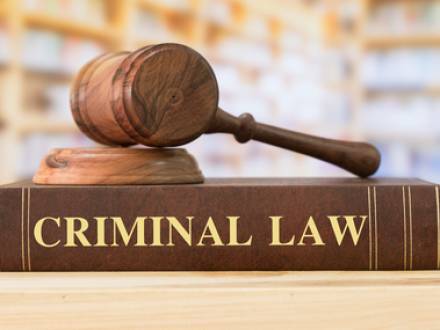
FREE CONSULTATIONS
8585-ADVICE
When Hearsay Is Allowed: Exceptions in Maryland Trials
 Anyone who watches crime television shows or movies has probably heard the term "hearsay." In a criminal trial, hearsay is typically used in the context of a lawyer objecting to a witness repeating something he or she did not see or hear firsthand. Hearsay is usually considered inadmissible because it cannot be regarded as reliable evidence.
Anyone who watches crime television shows or movies has probably heard the term "hearsay." In a criminal trial, hearsay is typically used in the context of a lawyer objecting to a witness repeating something he or she did not see or hear firsthand. Hearsay is usually considered inadmissible because it cannot be regarded as reliable evidence.
However, like most rules of evidence, there are exceptions. Under certain circumstances, hearsay can be admitted and may even play a significant role in the outcome of a case. If you are facing criminal charges, it can be helpful to understand when hearsay is allowed. Having a highly experienced Northern Baltimore County, MD criminal defense lawyer can help ensure that your rights are protected and that you achieve the best possible outcome.
What is Hearsay?
Maryland Rules of Evidence 5-801, regarding hearsay, was updated in 2020, under HB 449. Rule 5-801 and 802 define hearsay as an "out-of-court statement" offered to prove the truth of the matter asserted; however, the statement was made by someone who is not testifying. These statements are usually prohibited because the original speaker cannot be cross-examined, and the veracity of the statement cannot be challenged. Courts prohibit hearsay to ensure reliability and due process during a trial. Prohibiting hearsay ensures that:
- The jury can assess the credibility of the person who actually made the statement.
- The opposing party can challenge the validity of the statement through cross-examination.
- If the statement is false, the person who made it can be held accountable.
When Is a Statement Not Hearsay?
If a statement is offered for a purpose other than to prove the truth of what it asserts, then it is not considered hearsay. For example, a statement may be offered to prove the listener’s reaction rather than the truth of the words. A statement could also be offered to show a person’s intentions or thoughts, rather than the facts within the statement.
A statement could be used for impeachment purposes to show that an individual has made different statements about the same subject on different occasions. Finally, a statement can have independent legal significance if it is in the form of an offer, acceptance, or contract.
What Are the Exceptions to the Maryland Hearsay Rule?
Under Maryland Rule 5-802, hearsay is inadmissible unless an exception applies. The most common exceptions include:
- Statements made against one’s own self-interests (The statement is so damaging to the person making it that a reasonable person would not say it if it were not true.
- Dying declarations made when a person is either dying or at least believes he or she is dying are not considered hearsay.
- An excited utterance is a statement made under stress or excitement of a startling event and is not considered hearsay.
- Statements made to doctors for the purposes of a medical diagnosis or treatment are not considered hearsay.
- Business records made during the ordinary course of business, such as receipts, logs, or bank records, are not considered hearsay.
- Public records and official reports, including certified public documents, police records, and government documents, are not considered hearsay evidence.
These particular statements are exceptions to the hearsay rule because they are considered inherently trustworthy or reliable and can provide corroborating evidence.
Contact a Harford County, MD Criminal Defense Lawyer
Hearsay evidence can be confusing, but it can also play a crucial role in a criminal trial. A knowledgeable Northern Baltimore County, MD felony offense attorney from Baltimore Legal Services will know when exceptions apply, which can make the difference between evidence being admitted or thrown out. Our highly skilled attorneys have helped more than 10,000 clients get their lives back on track following criminal charges. We will fight for your future and your rights and are available 24/7, while offering a custom flat fee. To schedule your free consultation, call 858-523-8423.




 CALL US
CALL US TEXT US
TEXT US EMAIL US
EMAIL US
